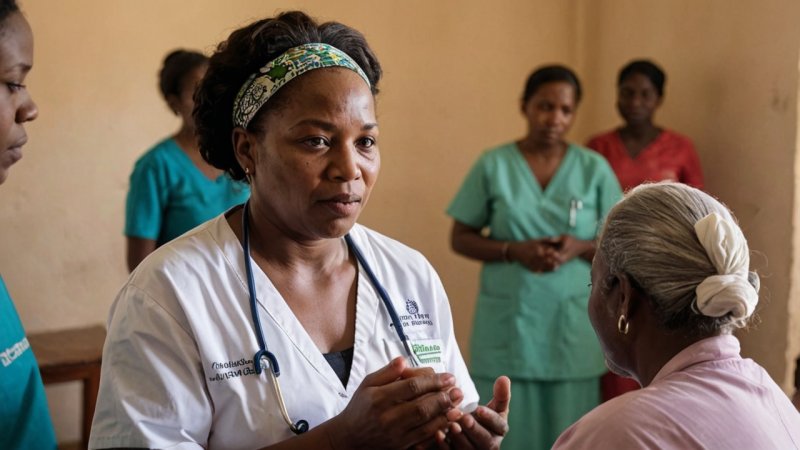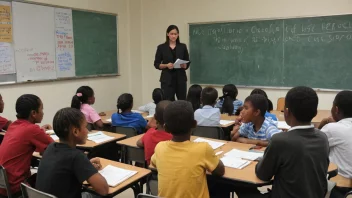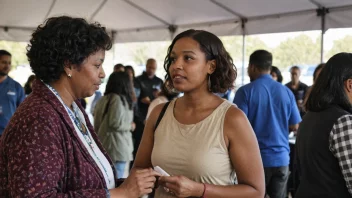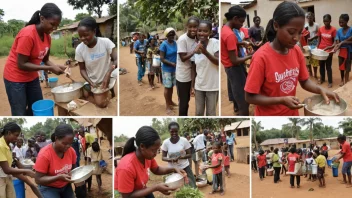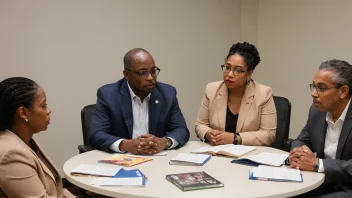In times of global health crises, the response of communities often hinges on the resilience and adaptability of various organizations. Among these, faith-based organizations (FBOs) have carved a significant niche, leveraging their unique positions within communities to provide essential support. While the world grapples with challenges such as pandemics, natural disasters, and humanitarian emergencies, FBOs often step in to fill gaps where traditional health systems may falter. This article delves into the multifaceted ways that faith-based organizations respond to global health crises, exploring their initiatives, challenges, and the profound impact they have on communities worldwide.
The Integral Role of Faith-Based Organizations
Faith-based organizations are defined by their commitment to serving others, inspired by their spiritual beliefs. They often blend faith with action, mobilizing resources, volunteers, and community networks to address pressing health issues. The unique attributes of FBOs enable them to reach marginalized populations and foster trust, making them invaluable during health crises. Their global presence, coupled with local knowledge and cultural sensitivity, allows them to respond effectively and compassionately.
Historical Context
FBOs have been integral to health care and humanitarian efforts for centuries. Historical records highlight their involvement in early hospitals and medical care, often serving the poor and vulnerable. The modern era has seen a resurgence of FBO activity, especially during significant health crises such as the HIV/AIDS epidemic, the Ebola outbreak, and the COVID-19 pandemic. Each of these events showcased the ability of faith communities to mobilize rapidly and effectively in response to urgent health needs.
Key Initiatives by Faith-Based Organizations
FBOs undertake various initiatives to address health crises, often focusing on areas such as education, advocacy, and direct health services. Below are some prominent strategies employed by these organizations.
1. Health Education and Awareness Campaigns
One of the most critical roles FBOs play is in health education. They utilize their community networks to disseminate information about disease prevention, treatment options, and health-promoting behaviors. During the COVID-19 pandemic, many FBOs launched campaigns to educate communities about the virus, emphasizing prevention measures such as mask-wearing, vaccination, and hygiene practices. By framing health messages within a cultural and spiritual context, these organizations can reach audiences that may be skeptical of traditional health messaging.
2. Direct Healthcare Services
Many FBOs operate clinics and health centers, providing essential medical services to underserved populations. These facilities often serve as a first point of contact for individuals seeking care, particularly in rural or impoverished areas. During health crises, FBOs may expand their services to include emergency care, vaccination drives, and mental health support. For example, during the Ebola outbreak, faith-based health facilities played a crucial role in treating infected patients and conducting awareness campaigns.
3. Community Mobilization and Volunteerism
FBOs are adept at mobilizing volunteers from within their congregations and communities. This volunteer network becomes a powerful resource during health crises, providing manpower for various initiatives such as food distribution, caregiving, and outreach programs. The sense of community fostered within faith groups often translates into a willingness to serve, making it easier to organize and deploy volunteers quickly. This grassroots approach can lead to more tailored and immediate responses to local health needs.
4. Advocacy and Policy Influence
FBOs also engage in advocacy efforts to influence health policy and resource allocation. They often represent the voices of marginalized populations, pushing for equitable health access and addressing systemic barriers that hinder vulnerable communities. By leveraging their moral authority and community connections, faith-based organizations can advocate for changes in health policies that prioritize the needs of the poor and marginalized, ensuring that their perspectives are included in decision-making processes.
Challenges Faced by Faith-Based Organizations
While FBOs play a crucial role in health crises, they also face significant challenges that can hinder their effectiveness. Understanding these obstacles is vital for enhancing their capacity to respond.
1. Limited Resources
Many FBOs operate on tight budgets, relying heavily on donations and volunteer efforts. This can limit their ability to scale up services during health emergencies. Moreover, competition for funding from various sources can create additional strains, making it challenging for smaller organizations to sustain their operations.
2. Coordination with Governments and Other Organizations
Effective response during health crises often requires coordination between various stakeholders, including governments, international agencies, and other non-profits. However, FBOs may face challenges in establishing these partnerships due to differing priorities, operational methods, or bureaucratic hurdles. Building relationships and trust among these entities is essential for a cohesive response.
3. Navigating Cultural and Religious Sensitivities
While FBOs often have deep community ties, they must navigate complex cultural and religious dynamics. Misunderstandings or conflicts can arise, particularly in multicultural settings where multiple faiths coexist. FBOs must strive to be inclusive and respectful of diverse beliefs while promoting health initiatives that may be seen as conflicting with certain cultural practices.
Case Studies: Successful Responses by Faith-Based Organizations
Examining successful case studies can provide valuable insights into the effective strategies employed by FBOs during health crises.
1. The Role of Churches During the HIV/AIDS Crisis
During the HIV/AIDS epidemic, many churches became pivotal in providing education, support, and advocacy. Organizations like the African American Church Health Network mobilized congregations to address stigma, promote testing, and provide care for affected individuals. Their efforts not only facilitated access to health services but also fostered community support and understanding, significantly changing the narrative around HIV/AIDS.
2. Faith-Based Response to the Ebola Outbreak
In West Africa, during the Ebola outbreak, FBOs were instrumental in mobilizing communities to combat the virus. They provided essential health education, supported treatment facilities, and offered pastoral care to those affected. Faith leaders played a crucial role in dispelling myths about the disease and encouraging safe practices, which ultimately contributed to controlling the outbreak.
3. Faith and Health During the COVID-19 Pandemic
Throughout the COVID-19 pandemic, FBOs worldwide stepped up to support their communities. From providing food and shelter for those in need to facilitating vaccination campaigns, these organizations demonstrated the power of faith in action. Many faith leaders used their platforms to advocate for public health measures, emphasizing the moral obligation to protect the vulnerable and uphold communal well-being.
Getting Involved: How Individuals Can Support Faith-Based Responses
Individuals looking to support FBOs during health crises can take several actionable steps:
- Volunteer: Many FBOs welcome volunteers to assist with outreach, education, and service delivery. Check local organizations to see how you can contribute your time and skills.
- Advocate: Use your voice to advocate for policies that support equitable health access and address the needs of marginalized populations. Engage with local leaders and policymakers to bring attention to critical issues.
- Educate Others: Share information about health initiatives and the work of FBOs within your community. Raising awareness can help mobilize further support and action.
- Engage in Interfaith Dialogue: Foster conversations between different faith groups to promote understanding and collaboration in addressing health challenges.
Conclusion
Faith-based organizations have proven to be a vital force in responding to global health crises. Their unique ability to mobilize communities, provide essential services, and advocate for change positions them as key players in addressing health disparities. Despite the challenges they face, the resilience and commitment of FBOs inspire hope and action. By understanding their contributions and supporting their efforts, individuals can play a pivotal role in enhancing the impact of faith-based responses to health crises, ultimately working towards a healthier and more just world.
